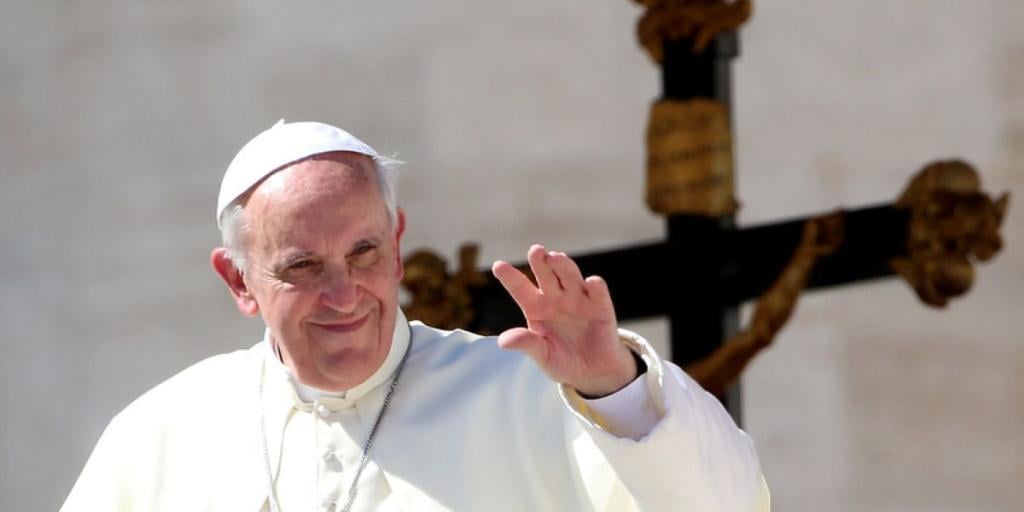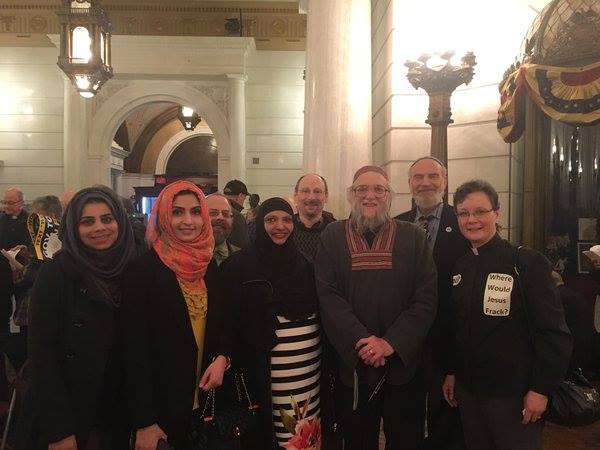The poetic timing of the death of Pope Francis between Easter and Earth Day is both poignant and galvanizing for the religious environmental movement.

Pope Francis’s death marks the end of an era.
Coming on the day between Easter Sunday and Earth Day, Pope Francis’s death on April 21, 2025, marks the end of a 12-year papacy that advocated for the care of God’s Creation in a way that was unmatched by his predecessors. His chosen papal name signaled his dedication to the cause of St. Francis of Assisi, the patron saint of Earth-care. In his 2015 encyclical, Laudato Si: Care for Our Common Home, he urged humanity to learn the virtue of humility from St. Francis, both towards each other and towards other species. He also courageously criticized the capitalist economy for its immoral subjugation of Earth and human communities.
As a religious environmental activist for twenty-five years, I have witnessed incredible energy around the emergence of the faith-based climate and environmental movement.
That movement has had a champion in Pope Francis who inspired both interdenominational and interfaith cooperation on Creation justice. He consistently called on Christians to address the ecological crisis and its deep connections with social and economic justice.
Due in large part to Pope Francis’s commitment to ecumenical cooperation, the three main branches of Christianity—the Orthodox Church, the Roman Catholic Church, and Protestants—came to share joint concern for protecting and preserving Creation.
Together, faith leaders across the globe have raised awareness about climate change, extreme weather, rising sea levels, pollution, loss of biodiversity, and deforestation. And we have urged our congregations and communities to embrace a position of humbleness, gratitude, and collaboration for eco-spiritual renewal as well as faith-based advocacy and activism.
But there is also something ominous about the timing of Pope Francis’s death.
The loss of Pope Francis comes at a time when the religious environmental movement is already under threat, especially in the U.S. We are bracing for anticipated orders and actions from the Trump administration on Earth Day that will target climate organizations.
Rumors are brewing that the government will suspend the nonprofit status of several climate change and environmental organizations, likely including faith-based groups. There is the distinct possibility that they may even label some religious environmental groups as domestic terrorist organizations.
Without a doubt, issuing an Executive Order to strip conservation and climate nonprofits of their 501(c)(3) tax-exempt status is intended to demoralize us.
Never mind that neither the president, the U.S. Department of Justice, the U.S. Department of the Treasury, nor the IRS have the ability to revoke the federal tax-exempt status of any entity through executive order or social media post. Their aim is for these efforts to have a chilling effect on the climate movement and tie us up in litigation that will drain our energy and resources.
Further, the point of labelling us as domestic terrorists is to silence us. Threatening us with arrest and possible rendition to a foreign concentration camp is meant to quash our movement. The goal is to remove pesky environmental activists in order to pave the way for rapacious destruction of this planet and enrich the oligarchy.

Trump has already moved quickly to undo or sidestep environmental regulation, gut climate science research, and halt federal support for clean energy.
On March 1, he issued an executive order entitled “Immediate Expansion of American Timber Production.” The order directs federal agencies to cut across 280 million acres of national forests and other public lands. As I wrote in a previous piece, the consequences of this executive order are dire.
The speed and volume of this onslaught is undoubtedly overwhelming.
But as Pope Francis proclaimed consistently throughout his ministry and in his writings and sermons, our common home—Earth—is sacred, and we have been entrusted with its care (Gen. 1:28, 2:15). Thus, we have a moral, ethical, biblical, and theological duty to defend this planet and her vulnerable ecosystems, biomes, and human communities.
When the empire targets you
Before his death, Jesus encouraged his disciples to stand firm against the powers aligned against them. We must also heed his words. Substituting the word “empire” for “world” in this passage, we see that John 14:18-19 has powerful significance for what we face.
“If the empire hates you, be aware that it hated me before it hated you. If you belonged to the empire, the empire would love you as its own. Because you do not belong to the empire, but I have chosen you out of the empire, therefore the empire hates you.”
In other words, those of us who are religious environmental leaders should not be surprised by what is happening and what Trump’s minions plan to do to us.
But this knowledge cannot deter us from our sacred duty to defend our common home.
In his final Easter message, Pope Francis wrote these words:
God has uprooted the diabolical pride that poisons the human heart and wreaks violence and corruption on every side. The Lamb of God is victorious! That is why, today, we can joyfully cry out: “Christ, my hope, has risen!”
He went on to say that “hope is not an evasion, but a challenge; it does not delude, but empowers us.”
This hope and empowerment is exactly what we need.
Now is the time to respond with courage, collaboration, and a concerted effort to resist the tyranny of this administration’s attack on us and God’s Creation.
It will mean coordinating with the coalition of organizations that are rising up to defend democracy and the rule of law. This includes working with unions, local grassroots organizations, and those preparing for widespread nonviolent noncooperation to disrupt and topple the systems that support authoritarianism and a planet-killing techno-oligarchy.

At the same time, we must elevate our distinct multi-faith voice and denounce the weaponization of Christianity against the vulnerable and our planet.
Jesus urged his disciples to claim the peace he was giving them, even in the face of persecution.
“I have said this to you so that in me you may have peace. In the empire you face persecution, but take courage: I have conquered the empire!” (John 16:3).
Pope Francis’s words in the final chapter of Laudato Si are written to us in the same spirit of encouragement to hold onto our faith.
God, who calls us to generous commitment and to give [God] our all, offers us the light and the strength needed to continue on our way. In the heart of this world, the Lord of life, who loves us so much, is always present. [God] does not abandon us, [God] does not leave us alone, for [God] has united [Godself] definitively to our earth, and [God’s] love constantly impels us to find new ways forward.
We will find new ways forward in the religious environmental movement, regardless of what the current administration says or does. We have each other, we have our common home to defend, and we have our fiercely loving God strengthening us in our resolve and love.
Read also:
Feast of St. Francis: Resurrection Sermon for an Earth-Kin Congregation
Ministering through Climate Grief: An Earth Day Reflection
Beyond Earth Day: 10 Ideas for Environmental Advocacy and Activism in Your Church

The Rev. Dr. Leah D. Schade is the Associate Professor of Preaching and Worship at Lexington Theological Seminary in Kentucky and ordained in the ELCA. Dr. Schade does not speak for LTS or the ELCA; her opinions are her own. She is the author of Preaching and Social Issues: Tools and Tactics for Empowering Your Prophetic Voice (Rowman & Littlefield, 2024), Preaching in the Purple Zone: Ministry in the Red-Blue Divide (Rowman & Littlefield, 2019) and Creation-Crisis Preaching: Ecology, Theology, and the Pulpit (Chalice Press, 2015). She is the co-editor of Rooted and Rising: Voices of Courage in a Time of Climate Crisis (Rowman & Littlefield, 2019). Her book, Introduction to Preaching: Scripture, Theology, and Sermon Preparation, was co-authored with Jerry L. Sumney and Emily Askew (Rowman & Littlefield, 2023).
















